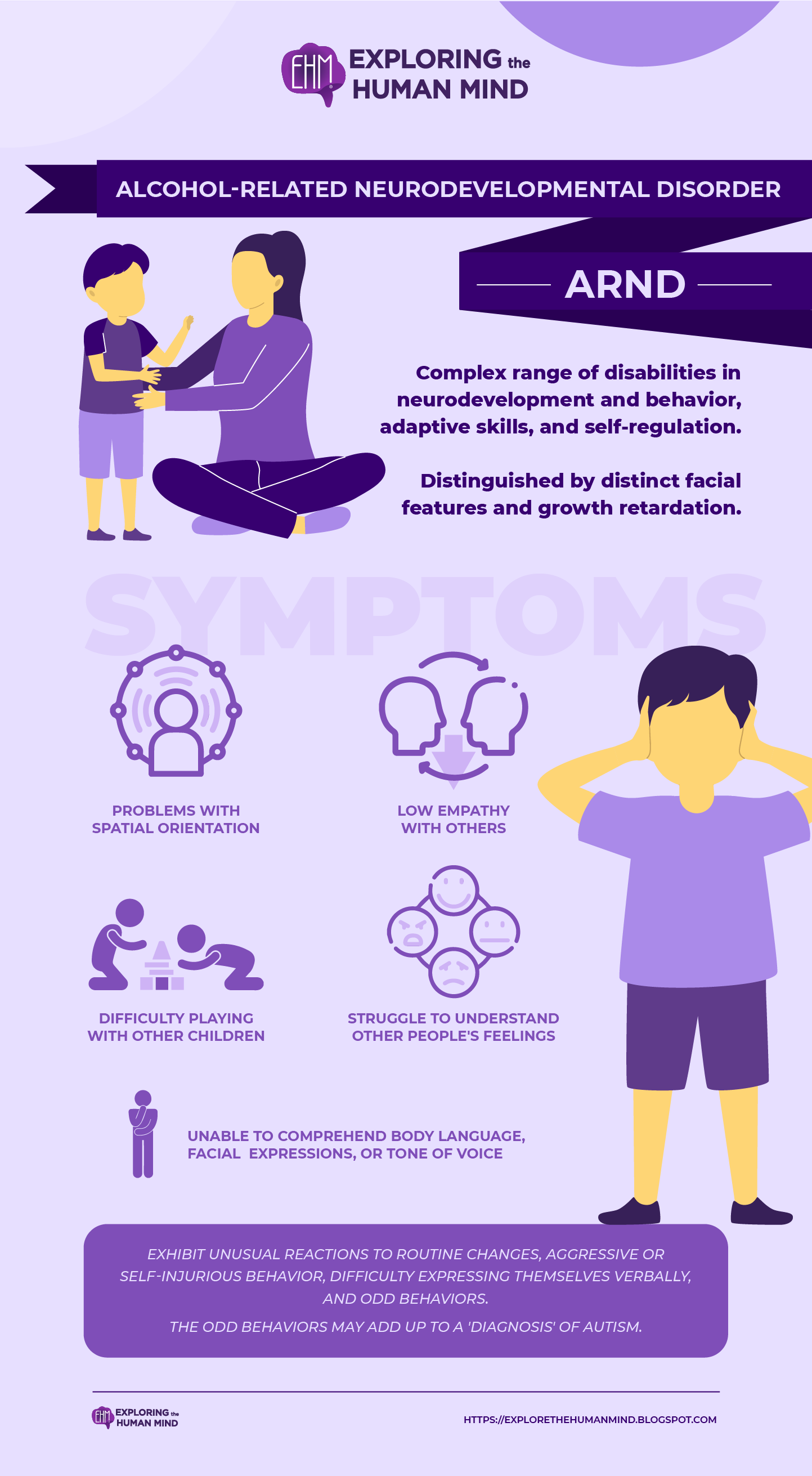Alcohol-Related Neuro Developmental Disorder ARND
People with ARND may have intellectual disabilities as well as behavioral and learning issues. They may perform poorly in school and struggle with math, memory, attention, judgment, and impulse control.
Individuals with ARND do not have the FAS facial phenotype (reduced palpebral fissure length, smooth philtrum, and thin upper vermillion border), but they may have structural and/or functional CNS abnormalities, and they may or may not have growth deficiencies or decreased cranial size at birth.
Symptoms
Children with ARND may:
- struggle to understand what other people think and feel
- have difficulty playing with other children
- have low empathy with others
- be unable to understand the 'give and take' in language
- be unable to comprehend body language, facial expressions, or tone of voice
- have problems with spatial orientation
- have overall cognition problems
Touch, sounds, smells, or sights that appear normal to others can cause significant distress, if not pain, in children with either disorder.
They also exhibit unusual reactions to routine changes, aggressive or self-injurious behavior, difficulty expressing themselves verbally, and odd behaviors. The odd behaviors in ARND may add up to a 'diagnosis' of autism.

vectors by Freepick; graphic design by Vadot
Reference:
Consensus Statement on Recognizing Alcohol-Related Neurodevelopmental Disorder (ARND) in Primary Health Care of Children. (2012). https://www.niaaa.nih.gov/sites/default/files/ARNDConferenceConsensusStatementBooklet_Complete.pdf
CDC. (2022, November 4). Basics about FASDs. Centers for Disease Control and Prevention. https://www.cdc.gov/ncbddd/fasd/facts.html#:~:text=Alcohol%2DRelated%20Neurodevelopmental%20Disorder%20(ARND,judgment%2C%20and%20poor%20impulse%20control.
The little-known birth disorder: ARND. (2006, November 21). Nymetroparents.com; https://www.nymetroparents.com/article/The-little-known-birth-disorderARND






Comments
Post a Comment